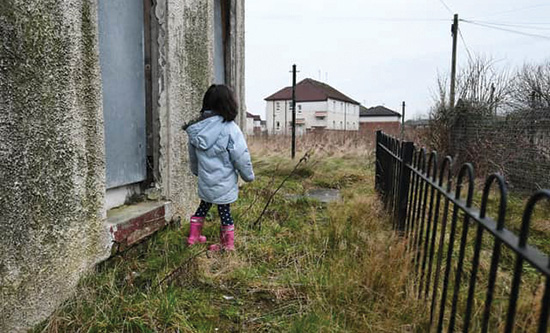
Destitution is a term used to describe the absolute lowest standard of living any adult, child or young person can experience; the lived reality is degrading and unsustainable. ”
— Buttle UK children’s charity
The impact of years of austerity and the sharpening of the attack on the working class is being paid for today by the poorest children in society. Their needs are being neglected as more and more of them go homeless, unfed and unwashed. Destitution is becoming normalised, with no way out in sight.
According to the Joseph Rowntree Foundation (JRF), for the last 25 years, children have been the demographic most affected by poverty. Households are considered to be below the UK poverty line if their income is below 60% of median household income after housing costs. JRF defines destitution as being unable to afford two or more essentials (defined as a home, food, heating, lighting, clothes, shoes and basic toiletries) in the previous month.
The children’s charity Buttle UK, which provides financial grants to children in need, surveyed the wide network of frontline workers who applied for grants for its State of Child Poverty 2023 report. It received 1,240 responses from organisations and officials representing 203,500 children, providing a grim snapshot of the deteriorating conditions for young people in Britain today: 60% of those children were living in destitution – that is, 122,000 children with a standard of living that has hit rock bottom. This compares to 45% reported in 2022, and 36% in 2021. Thousands more, the report warned, were ‘on the edge or tipping into this abyss’. Not only is the number of children in poverty increasing, but the depths of poverty they are plunged into are ever greater. These figures do not include the non-respondents to the survey or children who do not receive support grants from Buttle UK. A major 2020 study by the End Child Poverty Campaign – carried out before the coronavirus pandemic – suggested the number of children facing destitution was more than half a million.
Meanwhile 4.2 million children are living in poverty – 29% of all children in Britain. 71% of them live in families where at least one person is working, demonstrating yet again that work offers no guaranteed route out of poverty. The number of children experiencing food insecurity has doubled to four million in the last year, with one in four teachers admitting this summer than they regularly provide food for hungry children. 3.1 million adults in Britain experience what’s referred to as ‘hygiene poverty’: 62% of them who have dependent children say they have had to choose between buying shampoo, soap, toothpaste and sanitary products for themselves or their children, or between toiletries and food. Others have no hot water to wash with. Over 70% of school staff say they have seen more and more children arriving at school with unclean clothes, unwashed hair and unbrushed teeth. Recognition of poverty does not open up routes out of it: there are 900,000 children living in poverty who are currently denied free school meals. Schools and teachers are regularly washing uniforms and handing out laundry detergent and one in four teachers are bringing in food for children. They are stepping in where the state fails, but they cannot hide the scale of the problem.
Nor can food banks or other charities provide any kind of long-term solution. They can do nothing but paper over the problem and are in any case completely overstretched with a massive increase in demand but a decrease in availability. For example, the Buttle report shows that in the last year the percentage of families requiring support finding accommodation stood at 62%, but the net change in service availability plummeted by 45%. With the highest number of households in England living in temporary accommodation since records began – 104,510, which includes a staggering 131,370 children – there is little chance they will get support from already overwhelmed charities and councils that have cut services to the bone.
Mark Moncada
FIGHT RACISM! FIGHT IMPERIALISM! 296 October/November 2023




